The concentrated work of Morton Feldman doe not often come our way. So we’re happy to share the press release.
A celebration of the music of Morton Feldman
1- 4 April 2016
Taking its name from the only organ work by Morton Feldman, Principal Sound celebrates the music of this most individual and influential of composers in what would have been his 90th year. Bookended by two of Feldman’s late, great, masterpieces, the four-day festival brings together a number of leading new music performers with some of the UK’s most exciting young talent.
In one of the festival’s strands, important works from across Feldman’s output are placed alongside some of the music dearest to him, including the Webern Concerto for Nine Instruments and one of the cornerstones of American Experimentalism, John Cage’s String Quartet in Four Parts— the latter presented here by St John’s Young Artists the Ligeti Quartet. The festival also offers a rare opportunity to hear the vividly original, but all-too-often overlooked, music of two Feldman associates – Frank Denyer and Jo Kondo.
From there, the scope of the festival widens, taking in a broad range of composers who share something of Feldman’s tactile approach to the very substance of sound itself – from pioneering classics by Vivier and Rădulescu to a clutch of recent work, including a striking quartet from Arne Gieshoff – whose own Explorensemble have devised a fascinating programme placing Feldman within a European context. The UK premiere of Layers of Love, a major ensemble work by Christian Mason, features at the heart of a mouth-watering three-part concert from the Octandre Ensemble.
Another highlight of the festival is sure to be the unveiling of a new work from that incomparable clairvoyant of the near-silent, Jürg Frey, fresh from his residency at the 2015 Huddersfield Festival. Frey’s Shadow and Echo and Jade forms the still centre of a programme from Exaudi and organist James McVinnie which also takes in music by Feldman, Clementi and James Weeks before culminating in Guide, a deeply soulful work by the Canadian composer Cassandra Miller, whose generous and refreshingly direct musical voice is also showcased in a piano recital by Eliza McCarthy.
Opening the festival, with Feldman’s Piano and String Quartet, are some of the greatest Feldman interpreters of our time: the peerlessSmith Quartet and John Tilbury (who turns 80 this year). Finally, there is the chance to experience one of Feldman’s longest and most beautiful works in live performance, as Jenni Hogan, George Barton and Siwan Rhys, present For Philip Guston in all of its plaintive, quietly beguiling, vastness.
Website: Principal Sound Festival

Just in from a correspondent in Dallas:
Assistant conductor Karina Canellakis stepped in at the last minute tonight to lead the Dallas Symphony in Shostakovich’s massive ‘Leningrad’ Symphony after music director Jaap van Zweden had to cancel – literally 20 minutes before curtain – in order catch a plane to Amsterdam and attend to a family medical emergency.
The performance was spectacular! Van Zweden prepared the orchestra himself in rehearsals this week, so Canellakis probably hadn’t stepped in front of the orchestra at all until tonight’s performance. But she navigated a big, sprawling symphony loaded with frequent meter changes and did it with clear, precise, sweeping command as if she’d been living with this music for years.
Van Zweden is the next music director of the New York Philharmonic.
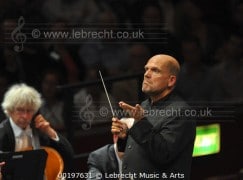
Georg Friedrich Haas: For decades, I tried to suppress and reject my sexual orientation. I thought of it as immoral. Then I decided to embrace it. I was incredibly lucky to find a partner who is willing to embrace it with me. This weight—I’ve carried it for decades, now suddenly it’s gone. That has caused a very fundamental change in me.
Read on here.

At the Guildhall School of Music and Drama, Professor Barry Ife is calling it quits at 69, it was announced today. He has been in the job for 12 years.
Not, perhaps, the most exhilarating period, according to the list of achievements enumerated in his press release:
· Realising the School’s long-held ambition to build additional facilities at Milton Court (opened September 2013), including state-of-the-art performance venues, rehearsal and teaching spaces.
· Leading the application that led to the Guildhall School being awarded Taught Degree-Awarding Powers, which were granted by the Privy Council in April 2014.
· Reviving and strengthening strategic partnerships with a range of performing arts organisations such as Barbican Centre, LSO and The Royal Opera.
· Leading the Guildhall School to become the UK’s single largest provider of music education to under 18s by incorporating the Centre for Young Musicians (CYM) and creating new CYM music ‘hubs’ in Norfolk, Somerset and Saffron Walden.
· Recognition for Guildhall’s music outreach and opera programmes through two Queen’s Anniversary Prizes (2005 and 2007).
· Repositioning the School within the higher education sector.
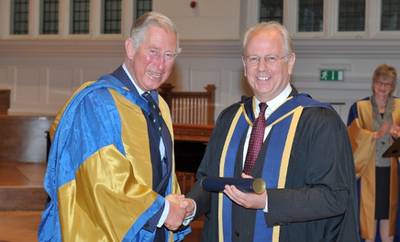
We have been informed of the death, in her 50s, of Jayne Casselman, an American soprano who sang major roles in Germany and elsewhere. She was diagnosed with ALS in October 2014 and died two days ago, on February 3.

As Isolde (with Ian Storey), 2010
Born in Iowa and educated at the University of Kansas Jayne joined the opera houses of Kaiserslautern, Kassel, Dortmund and Mannheim, first as a lyric mezzo and then as a dramatic soprano. She sang Brünnhilde, Elektra, Salome, Isolde, Elizabeth and Venus, Sieglinde, Senta, Kundry, Ariadne, Katerina Ismailova, Goneril in Reimann’s Lear, Rachel in Halevy’s La Juive and much else. In 2009 she founded her own Theatre, the Kulturhof Huthmacher in Dierbach. She had a close working relationship with the conductor Jeffrey Tate.
Susan Maclean, mezzo-soprano at Deutsche Oper am Rhein, writes: ‘I sang with her countless times, and it was always a joy. She not only created vibrant characters, she developed detailed relationships. Playing a scene with Jayne was like a great vocal tennis game. Then there was the warm, powerful, sumptuous voice that soared over the orchestra. The opera world is very sad today, especially in Germany where she lived and performed for so many years.’
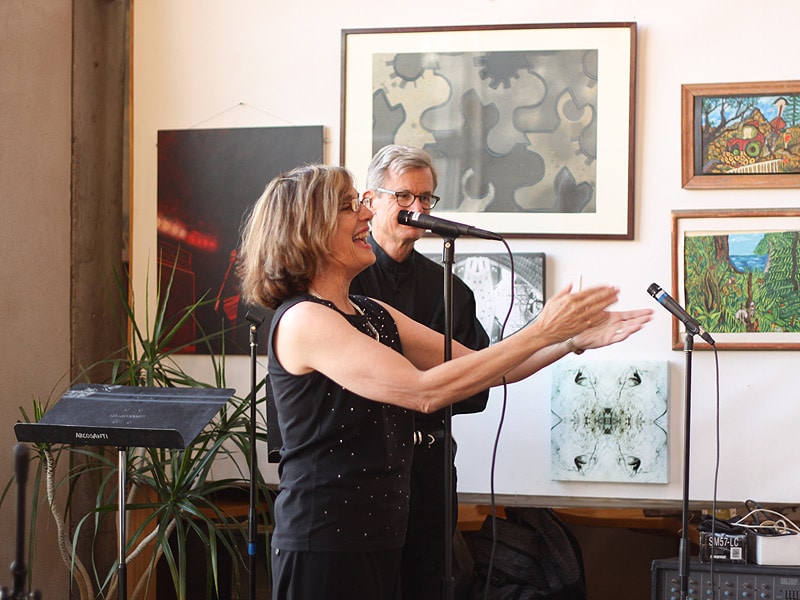
Jayne, 2014
The national Olympic Committee of France has taken legal action to force an orchestra to change its name.
According to le Canard enchaîné, the Olympic committee objected to the name ‘Le Concert de La Loge Olympique’, a title that has its origins in the series of Paris concerts played by Joseph Haydn in 1783.
But the sporting bullies were deaf to reason and history. They gave the orchestra’s founder Julien Chauvin until February 11 to abandon the name or face court proceedings. Yesterday, he surrendered.
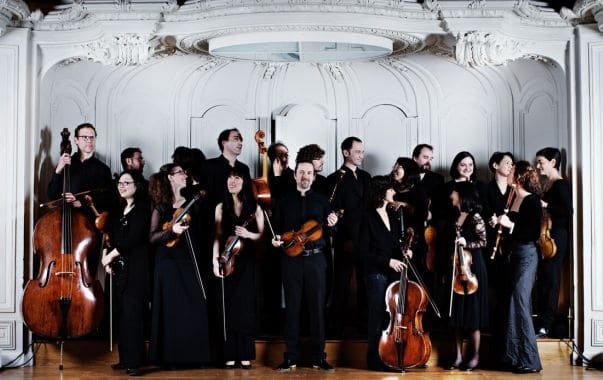
In January 1968, Isaac Stern had some difficulty taking his violin onto a United Airlines flight. On returning home, Isaac called his lawyer, who fired off letters to United and to the Federal Aviation Administration.
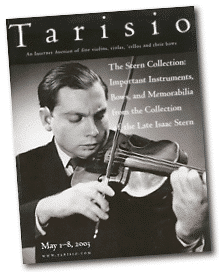
The replies, shown to us by Tarisio, the instrument auction house, effectively gave Isaac a passports to carry his violin wherever he liked, almost. The FAA stipulated ‘so long as it can be stowed under a seat.’ United suggested that Isaac hold the violin on his lap.
Different times.
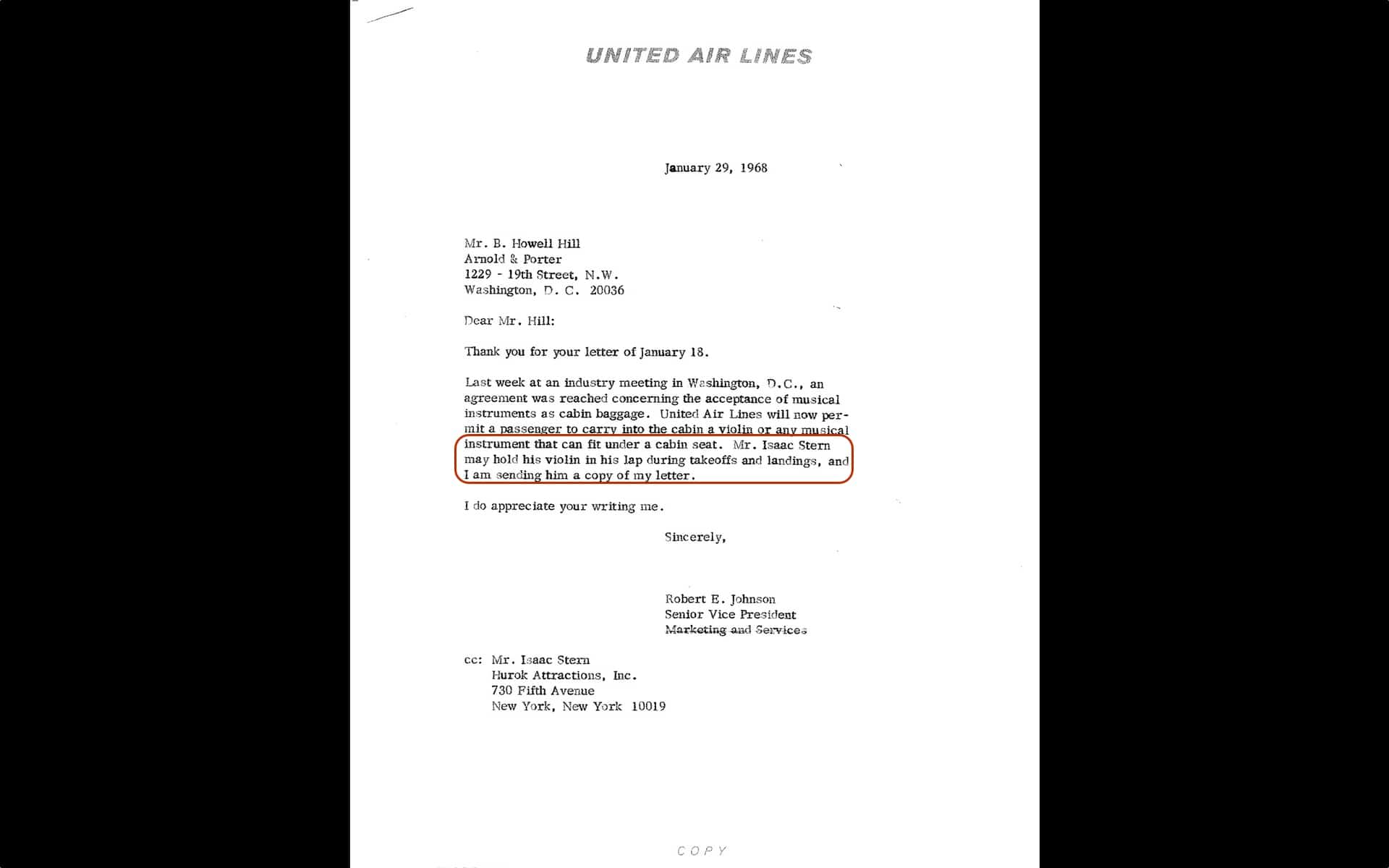
From Bruce Duffie’s interview with the late composer Leslie Bassett, who died yesterday:
Bruce Duffie: First, let me ask you about winning the Pulitzer Prize. Has that had any great lasting effect on you or your composing?
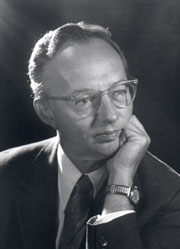 Leslie Bassett: It brought me a better salary at the University of Michigan, which is nice, but it didn’t bring as many performances of theVariations itself as you would have thought. You would have assumed that the orchestra piece that wins the Pulitzer Prize then would be used. In fact, my publisher did send the score around to a lot of orchestras somewhat later, because it wasn’t published right then. But it hasn’t had as many performances as you would have expected, and I found that disappointing. I talked with Michael Colgrass not too long ago, and he was complaining also that his Pulitzer Prize orchestra piece had not been played a second time, or at least not more than once, until it was done by Louisiana State University when he was there as guest composer two or three years ago. And he found this strange, a piece which presumably is considered good isn’t immediately grabbed by orchestras. I think there’s a certain amount of promotional things that have to be done, and if you have agents and publishers who are very aggressive in this regard and feel they can invest throwing away most of the scores, then I think maybe there’s some chance of it. But it’s a very touchy business. But it has made a lot of difference, in fact, because when you go to a town and you’re discussed, or comments are made by local newspapers, they all know it’s the Pulitzer Prize, so they give it coverage.
Leslie Bassett: It brought me a better salary at the University of Michigan, which is nice, but it didn’t bring as many performances of theVariations itself as you would have thought. You would have assumed that the orchestra piece that wins the Pulitzer Prize then would be used. In fact, my publisher did send the score around to a lot of orchestras somewhat later, because it wasn’t published right then. But it hasn’t had as many performances as you would have expected, and I found that disappointing. I talked with Michael Colgrass not too long ago, and he was complaining also that his Pulitzer Prize orchestra piece had not been played a second time, or at least not more than once, until it was done by Louisiana State University when he was there as guest composer two or three years ago. And he found this strange, a piece which presumably is considered good isn’t immediately grabbed by orchestras. I think there’s a certain amount of promotional things that have to be done, and if you have agents and publishers who are very aggressive in this regard and feel they can invest throwing away most of the scores, then I think maybe there’s some chance of it. But it’s a very touchy business. But it has made a lot of difference, in fact, because when you go to a town and you’re discussed, or comments are made by local newspapers, they all know it’s the Pulitzer Prize, so they give it coverage.
BD: How difficult is it to get second performances of anything, Pulitzer Prize or no?
LB: It depends, I suppose, on an awful lot of things. Young composers have an awful lot of trouble getting second performances if they don’t have a national name and if their piece was performed well by, let’s say, a good community orchestra or one of the minor major orchestras. It’s very hard to get a second performance. There are a lot of composers in the United States.
Read more here.
Our weekly diary from Anthea Kreston, new member of the Artemis Quartet, takes a dramatic turn with a visit to the surgeon, and strict orders not to play for a week. Read on:
A month and a day
On January 7, I stepped on a plane in Portland, Oregon, heading to Berlin, Germany to audition for the spot of second violin for the Artemis Quartet. On February 8, I again step on a plane in Portland, Oregon, heading to Berlin Germany, but this trip doesn’t have a return. With me this time is my husband, cellist Jason Duckles, and our very excited daughters, age 4 and 6. In just over a month, our lives have taken a 180 degree turn.

Did you know that there is a baby elephant at the zoo in Berlin? And Legoland. And a Cat Cafe – you can pet a cat while having a cookie. Those were the main selling points for the shorter members of the Kreston-Duckles household. The selling points for the taller members are too numerous to list here, but here is a summary.
– I get to rehearse and play with my favorite quartet in the world. Rehearsing might be even more fun than the performing.
– My children grow up in a wonderful culture, and learn to speak multiple languages.My husband will be able to stay at home with the children.
– I get to see the world and play wonderful music along the way.
– We can live in one of the most exciting cities in Europe.
When the Artemis asked me to come play the auditions (because I was coming from so far away they asked me to prepare for both rounds in one visit), I had a little less than 2 weeks to learn large segments of 8 quartets. Now I had 2 weeks (it took time to solidify the programs with the presenters) to ready 6 quartets in entirety, concert-ready.
These are:
Mozart 387
Beethoven 59/1
Janacek “Kreutzer Sonata”
Wolff Italian Serenade
Shostakovich 5
Grieg
I also had to:
– Get papers in order for a German work Visa
– Liquidate our belongings – a house and two cars
– Set up our rental house with long-term renters
– Do taxes
– Sell extra violas and violins
– Organize for international shipping of essentials (read: art, music, large 6 foot stuffed panda)
– Pass off my concert series to a new director
– With grace, cancel my season of concerts
– Rent a flat in Berlin
– Get flights for the March European tour and April USA tour (thank you Daniela)
– Get the whole family to the doctor and collect records as well
Yesterday was our last business day – we split up to each handle a huge list of final preparations.
Two days ago, the doctor called – the sample they took from my back last week wasn’t cancer, but it has enough red flags to warrant a full removal. Thursday morning I went in for a larger procedure than I expected (on several occasions, someone even said “suction please”). At the end – the instructions were – no lifting or playing violin for one week, and please take it very easy for three – if you rip stitches now the recovery will double. Hrumph. I have an idea! Let’s move to Germany for a huge violin job, but not lift anything (or anyone
The young Viennese violinist Daniel Auner has written to Air Berlin, seeking clarification of a Slipped Disc report this week that the airline is insisting violinists buy an extra seat for their instrument.
Air Berlin sent him a polite reply today, stating quite firmly that they will not accept a violin as hand luggage:
Betreff: Re: Re: Gepäck / Sondergepäck / Handgepäck – Anfrage über das Kontaktformular
Datum: Fri, 5 Feb 2016 10:05:02 +0100
Von: airberlin Service Center <service-center@airberlin.com>
Antwort an: service-center@airberlin.com
An: info@danielauner.com
Sehr geehrter Herr Auner,
vielen Dank für Ihre E-Mail.
Aufgrund der Abmessung wird Ihr unschätzbares Musikinstrument neben Ihnen Platz nehmen müssen.
Bitte kontaktieren Sie die Mitarbeiter unserer Service Hotline, um eine Neubuchung mit Extra Seat anzulegen. Für den Extra Seat ist der Nettotarif für einen Erwachsenen plus Kerosinzuschlag zu zahlen.
Mit freundlichen Grüßen
Ihr S. Kalaica
Service Team airberlin group
Air Berlin PLC & Co. Luftverkehrs KG
Saatwinkler Damm 42-43
D-13627 Berlin
Germany
Moral of the story: Avoid Air Berlin.

UPDATE: Airberlin commented: ‘As our service team stated, violins can be brought on board by buying an additional ticket for the netto fare price plus kerosene surcharge. We forwared (sic) this issue to our colleagues to review our policies regarding instruments on board.’
To which we replied: ‘At present, you are the only airline that requires violinists to purchase an extra seat. Plus gas surcharge. No musician will knowingly fly arberlin again until these penalties are removed. NL’
They are planning for 600 degree students and 115 postgraduates in Dudley, heart of England.
When there’s a flourishing conservatory in Birmingham, just 10 miles away…
Does any planning go into the provision of higher education?
Report here.

We’ve received a European Commission report on the critical question of whether Spotify promotes or depresses commercial sales of music. Does it act as an incentive to consumers to buy music? Or does it suppress the desire to make a real purchase? The answer seems pretty unequivocal. Here’s the report summary:
Abstract
Streaming music services have exploded in popularity in the past few years, variously raising optimism and concern about their impacts on recorded music revenue.
On the one hand, streaming services allow sellers to engage in bundling with the promise of increasing revenues, profits, and consumer surplus. Successful bundling would indeed translate some of the interest in music not generating revenue through individual track sales – unpaid consumption and deadweight loss – into willingness to pay for the bundled offering. On the other hand, streaming may displace traditional individual track sales. Even if they displace sales, streams may however still raise overall revenue if the streaming payment is large enough in relation to the extent of sales displacement. We make use of the growth in Spotify use during the years 2013-2015 to measure its impact on unpaid consumption and on the sales of recorded music. We find that Spotify use displaces permanent downloads. In particular, 137 Spotify streams appear to reduce track sales by 1 unit. Consistent with the existing literature, our analysis also shows that Spotify displaces music piracy. Given the current industry’s revenue from track sales ($0.82 per sale) and the average payment received per stream ($0.007 per stream), our sales displacement estimates show that the losses from displaced sales are roughly outweighed by the gains in streaming revenue. In other words, our analysis shows that interactive streaming appears to be revenue-neutral for the recorded music industry.

Source: Institute for Prospective Technological Studies, Digital Economy Working Paper 2015/05
Streaming Reaches Flood Stage: Does Spotify Stimulate or Depress Music Sales?
by Luis Aguiar (IPTS), Joel Waldfogel (University of Minnesota and NBER)










 Leslie Bassett: It brought me a better salary at the University of Michigan, which is nice, but it didn’t bring as many performances of theVariations itself as you would have thought. You would have assumed that the orchestra piece that wins the Pulitzer Prize then would be used. In fact, my publisher did send the score around to a lot of orchestras somewhat later, because it wasn’t published right then. But it hasn’t had as many performances as you would have expected, and I found that disappointing. I talked with Michael Colgrass not too long ago, and he was complaining also that his Pulitzer Prize orchestra piece had not been played a second time, or at least not more than once, until it was done by Louisiana State University when he was there as guest composer two or three years ago. And he found this strange, a piece which presumably is considered good isn’t immediately grabbed by orchestras. I think there’s a certain amount of promotional things that have to be done, and if you have agents and publishers who are very aggressive in this regard and feel they can invest throwing away most of the scores, then I think maybe there’s some chance of it. But it’s a very touchy business. But it has made a lot of difference, in fact, because when you go to a town and you’re discussed, or comments are made by local newspapers, they all know it’s the Pulitzer Prize, so they give it coverage.
Leslie Bassett: It brought me a better salary at the University of Michigan, which is nice, but it didn’t bring as many performances of theVariations itself as you would have thought. You would have assumed that the orchestra piece that wins the Pulitzer Prize then would be used. In fact, my publisher did send the score around to a lot of orchestras somewhat later, because it wasn’t published right then. But it hasn’t had as many performances as you would have expected, and I found that disappointing. I talked with Michael Colgrass not too long ago, and he was complaining also that his Pulitzer Prize orchestra piece had not been played a second time, or at least not more than once, until it was done by Louisiana State University when he was there as guest composer two or three years ago. And he found this strange, a piece which presumably is considered good isn’t immediately grabbed by orchestras. I think there’s a certain amount of promotional things that have to be done, and if you have agents and publishers who are very aggressive in this regard and feel they can invest throwing away most of the scores, then I think maybe there’s some chance of it. But it’s a very touchy business. But it has made a lot of difference, in fact, because when you go to a town and you’re discussed, or comments are made by local newspapers, they all know it’s the Pulitzer Prize, so they give it coverage.


